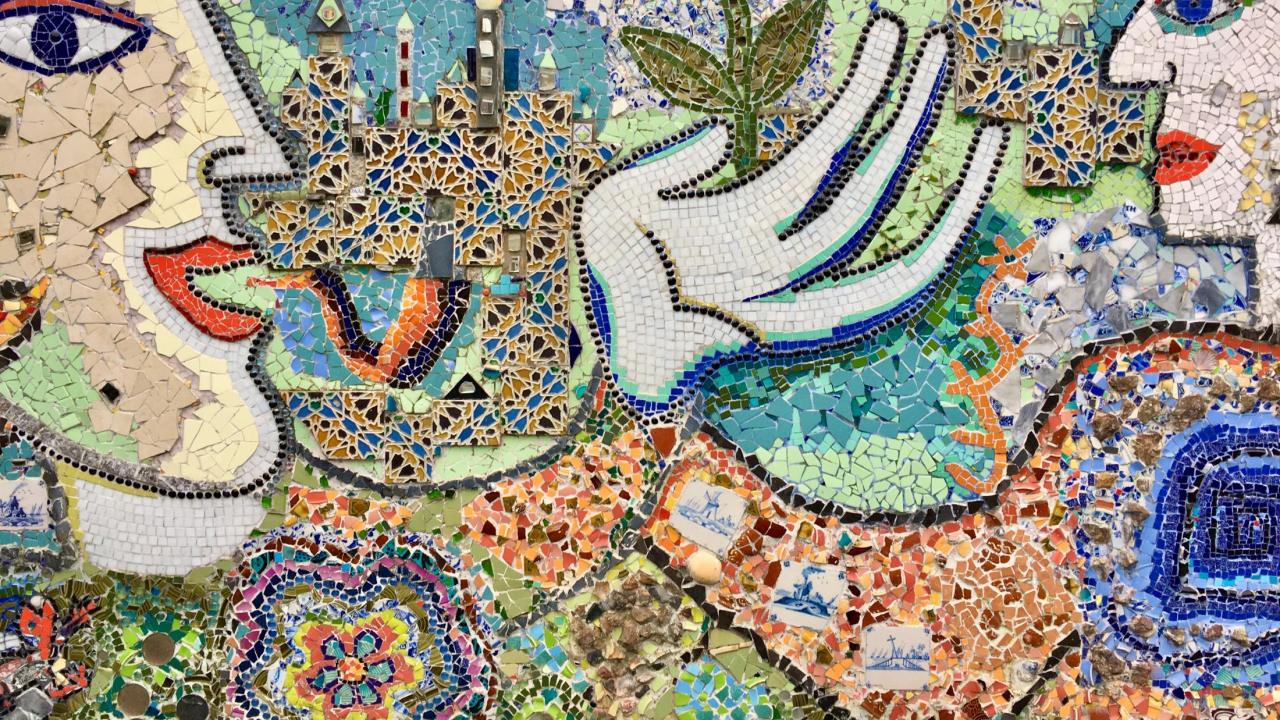
Nine collaborative projects funded through Public Impact Research Initiative
Faculty grants awarded to spur and deepen campus-community partnerships
The Public Impact Research Initiative (PIRI) was established through Public Scholarship and Engagement to recognize and support research that is cogenerated with community partners, is of mutual benefit, and has a positive public impact. Through this initiative, we provide financial support for new collaborations and sustained relationships that will support publicly engaged research with non-university partners.
This year, the PIRI program received 30 funding requests from faculty and researchers from many of the UC Davis colleges and schools. Projects range from post-wildfire recovery of ecosystems to understanding knowledge, attitudes and beliefs around COVID-19 vaccines, to addressing land and food sovereignty.
“We are so excited to be able to support these important research projects that reflect exemplary UC Davis scholars, their partners, and their work that is of high public impact. These partnerships set the bar very high for engaged scholarship at our university” said Tessa Hill, associate vice provost for Public Scholarship and Engagement.
These collaborative relationships not only improve research questions and methods, they often extend a project's longevity. The research that Associate Professor Katherine Kim from the Betty Irene Moore School of Nursing and School of Medicine is conducting with the Nature Rights Council, a local non-profit organization in the Klamath Basin, is one such example. In 2020, Professor Kim and her collaborators received a seed grant to support evaluation of the Yurok Food Sovereignty Project, which applies modern harvest and food processing practices through a home gardening assistance service and subscription-based food delivery. This year, they were awarded funding to continue their research.
“With this bridge grant, we will deepen this collaboration through a combination of stakeholder engagement, training, and application of research skills in the evaluation of the Yurok Food Sovereignty Project,” Kim said.
All PIRI grants incorporate collaboration with non-university partners who have regional, national and global reach – from state governmental entities like the California Department of Public Health to nonprofits like Wellspring Women’s Center and non-governmental organizations in Argentina.
“The Initiative is an expression of an important value – that personal relationships matter, and it is these types of relationships that ground the work of many public scholars,” noted Vice Provost Michael Rios. “PIRI seed and bridge grants also express a commitment to building a solid foundation for research collaborations to pursue additional resources as these partnerships grow and blossom.”
2021-22 Public Impact Research Initiative Seed Grants
- Building the Tools of Land Sovereignty: Aiding Lisjan Ohlone Networks in Building Governmental and Financial Tools
UC Davis leads: Professor Gregory Downs and Assistant Professor Justin Leroy, Department of History, College of Letters and Sciences
Collaborator: Sogorea Te’ Land Trust - Evaluation of Wildlife Rewilding on Livestock Producers in a Patagonian Working Landscape
UC Davis lead: Assistant Professor Justine Smith, Department of Wildlife and Conservation Biology, College of Agricultural and Environmental Sciences
Collaborator: Fundación Flora y Fauna Argentina - Identifying and addressing ecological knowledge gaps in managing California’s low-elevation ecosystems to minimize the negative impacts of wildfire, and enhance post-fire recovery
UC Davis leads: Professor Valerie Eviner, Associate Professor Jennifer Funk, and Professor Mary Cadenasso, Department of Plant Sciences, College of Agricultural and Environmental Sciences
Collaborators: California Native Grasslands Association, Pepperwood Preserve, and Tuleyome - luk’upsíimey/North Star Collective: Niimiipuu/Mayan Connections – Language Revitalization in Chiapas, Mexico
UC Davis leads: Professor Inés Hernández-Ávila, Department of Native American Studies, College of Letters and Science
Collaborators: luk’upsíimey/North Star Collective; Beth Piatote, Department of Native American Studies, UC Berkeley - Reuniting Families: Understanding the impact of immigration prison decarceration due to the COVID-19 pandemic on detained immigrants and their families
UC Davis lead: Assistant Professor Caitlin Patler, Department of Sociology, College of Letters and Sciences
Collaborator: American Civil Liberties Union - UC Davis – Wellspring Women’s Center partnership to build understanding of COVID-19 vaccine confidence among diverse, low-income women in Sacramento
UC Davis lead: Associate Professor Ester Apesoa-Verano, Professor Sheryl Catz and Postdoctoral Scholar Susan Miller, Betty Irene Moore School of Nursing
Collaborator: Wellspring Women’s Center
2021-22 Public Impact Research Initiative 2021 Bridge Grants
- California BIPOC Youth Perspectives about COVID-19 Pandemic: A Community Engaged Participatory Research
UC Davis lead: Professor Natalia Deeb-Sossa, Department of Chicana/o Studies, College of Letters and Science
Collaborators: Empower Yolo; Rosa Manzo, Associate Director of Medical Education, UC Merced; DSkye Kelty; Postdoctoral Fellow in the Joint Graduate Group in Pharmacology and Toxicology, Rutgers University - Deepening Co-Creation of Research for Yurok Food Sovereignty
UC Davis lead: Associate Professor Katherine Kim, Betty Irene Moore School of Nursing and Department of Public Health Sciences, School of Medicine
Collaborator: Nature Rights Council - Understanding WIC Participant Responses to Vendor Policy Enforcement
UC Davis leads: Professor Tim Beatty and Ph.D. student Charlotte Ambrozek, Department of Agricultural and Resource Economics, College of Agricultural and Environmental Sciences
Collaborator: California Department of Public Health: Women, Infants and Children Program
About UC Davis Public Scholarship and Engagement
Public Scholarship and Engagement (PSE) is building and supporting meaningful relationships between communities and UC Davis scholars that work together to solve today’s problems and tomorrow’s challenges.
We envision a university unbound that seeks to serve the public, equitably and inclusively, resulting in reciprocal and mutual benefit to California’s communities and beyond.
